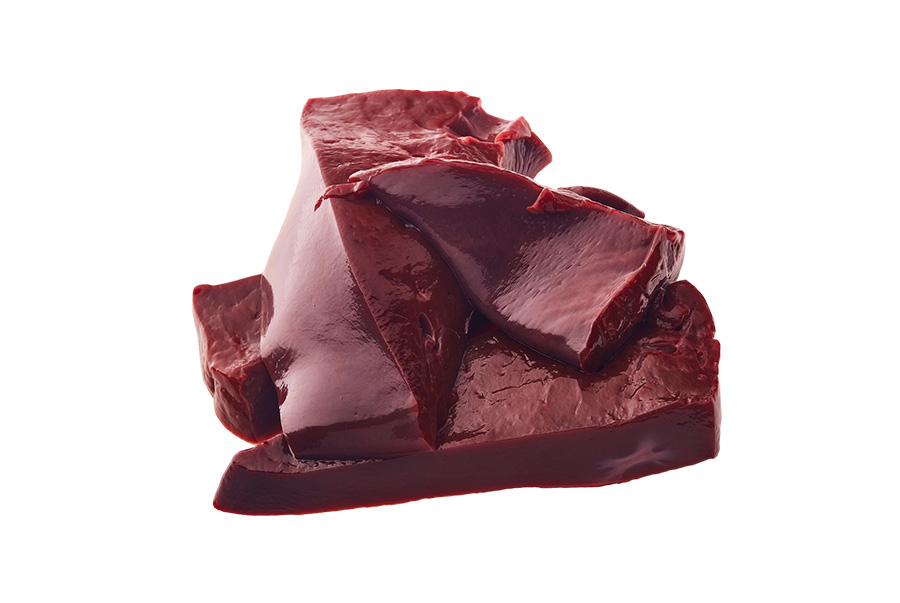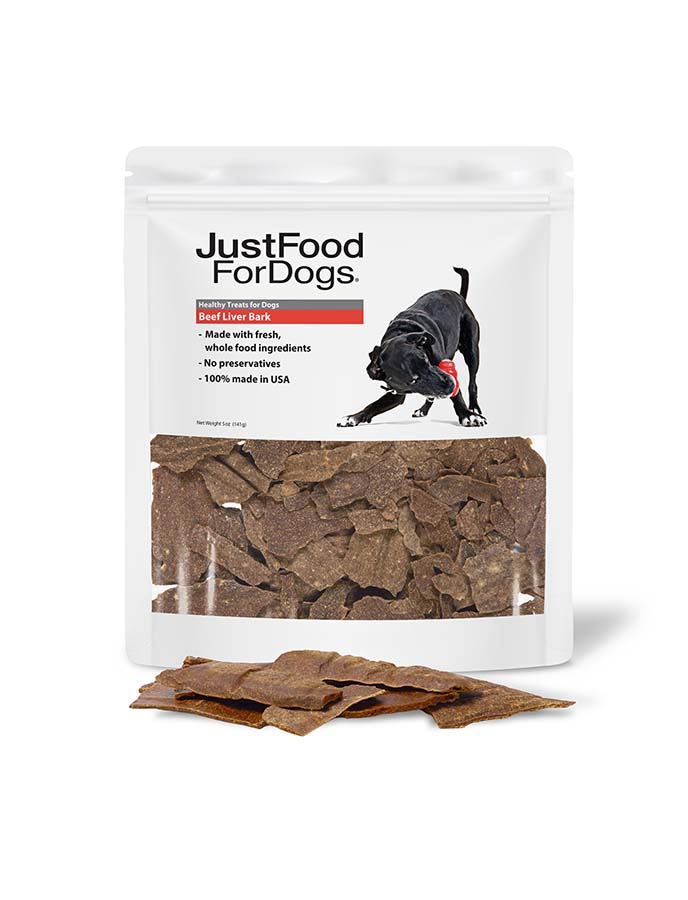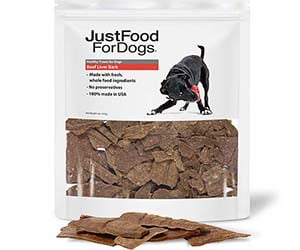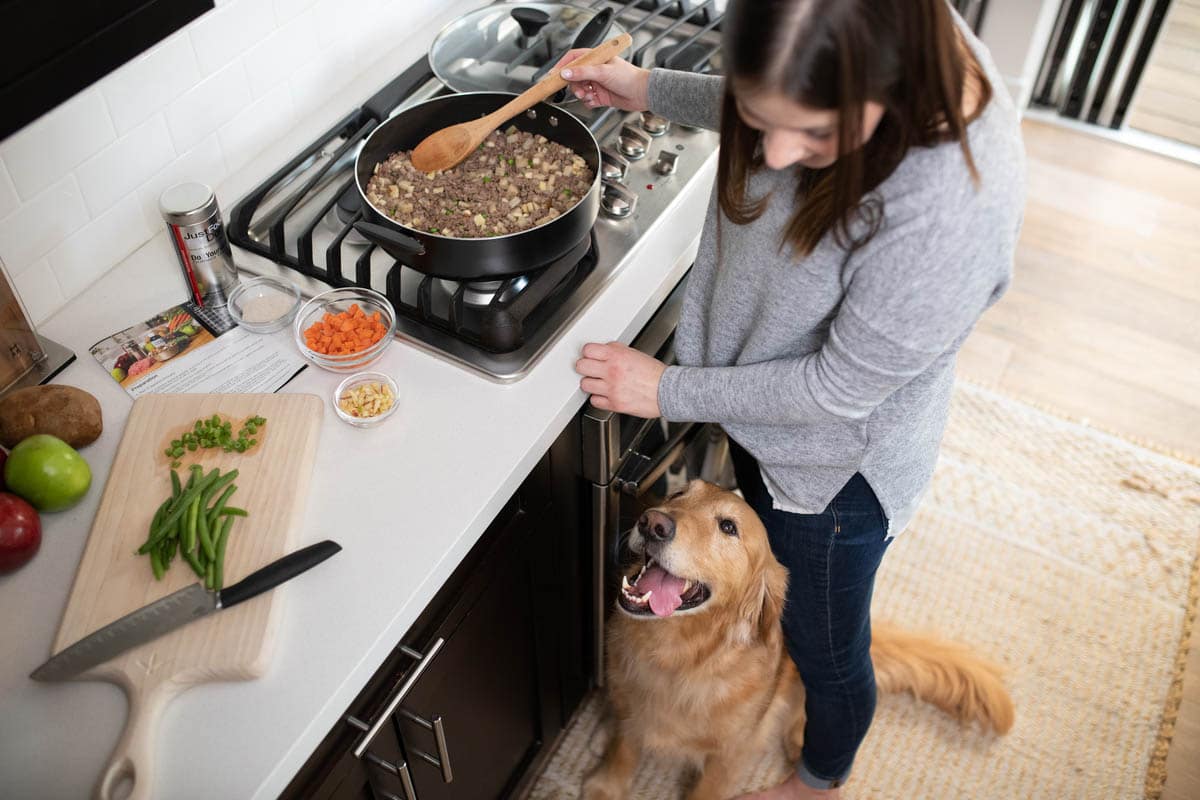Beef Liver for Dogs
Let's take a look at some of the reasons why you might want to make beef liver for dogs a part of their diet.
You often hear about how good beef liver is as a protein source for humans, but what about your best friend? Does beef liver for dogs make a good pet food? After all, it is an organ meat, and you might naturally wonder if it’s okay for your dog to eat it.
As it turns out, beef liver is a good dog food, and it is something that has a lot of health benefits for your pup. Let’s take a look at some of the reasons why you might want to make it part of your dog’s diet.
Why Is Beef Liver Good for Dogs?
In fact, beef liver is a kind of superfood for dogs, and some would say for humans too! There are several reasons why it’s such a good ingredient as part of your pooch’s diet.
Beef Liver Is Lower in Fat
One reason beef liver is so good for dogs is that it is lower in fat than muscle meat. That’s important for your dog’s overall health so he can avoid becoming obese, a growing problem for American pets.
It’s Rich in Vitamin A & Vitamin D
Beef liver is also rich in Vitamin A. Vitamin A is an antioxidant that supports digestion and reproductive organs. Antioxidants prevent oxidative stress, which has been found to be a factor in many diseases of animals and humans. In dogs, oxidative stress has been implicated in liver disease, specifically.
Vitamin D is an extremely important nutrient for supporting immune system function. The immune system is important for preventing cancer, autoimmune diseases, and infectious diseases. Additionally, it supports bone and muscle strength.
Rich in Folic Acid and Other Folates
The liver is the storage organ for most of the folates in the body. Therefore, it is a rich source of folic acid, vitamin B9, and vitamin B12, among other B vitamins. Folic acid supports reproductive health in dogs, and other B vitamins support mental and nerve health. Additionally, folates help your best friend avoid fatigue and anemia.
Liver is Rich in Iron
Iron is a vital element of red blood cells as it is what forms hemoglobin, which allows the red blood cells to carry oxygen. It also helps your dog regulate his body temperature and supports his endurance and strength. A lack of iron will also negatively affect the T-cells and antibodies that are an important part of his immune system.
Liver Is Also Rich in Vital Minerals
Liver is also a rich source of vital minerals like copper and zinc. These are crucial for supporting bone and joint health as well as healthy skin, a shiny coat, and a strong immune system.
Rich in Essential Fatty Acids
Beef liver is also rich in essential fatty acids, specifically Omega 3 and Omega 6. These help to maintain your buddy’s skin and coat, promote joint health, and support healthy cognitive function, among other benefits.

Which Is Better: Liver or Muscle Meat?
There are many benefits of feeding liver as opposed to muscle meat. A simple comparison of 100 grams of lean ground beef with 100 grams of beef liver demonstrates why.
That 100 grams of beef liver contains six times as much iron as the muscle meat, 23 times more calcium, two times more niacin, and a whopping 16 times as much Vitamin D. It also contains over 100 times more copper, five times more choline, and twenty times more zinc.
The benefits continue as you can see that beef liver has six times more phosphorus than muscle meat, an astonishing 1200 times as much Vitamin A, 1300 times more manganese, and 260 times more magnesium.
What it doesn’t contain is as much fat. In fact, it only has one-third the amount of total fat as muscle meat and one-third the amount of saturated fat.
If your beef liver comes from pasture-raised sources, you get even more benefits. The essential nutrients are much higher than in factory-farmed animals. Given this comparison, you can see that beef liver really is a super food for your dog.
How Safe Is Beef Liver for Dogs?
Beef liver is very safe for dogs to eat. While the liver’s main job in the body is to detoxify it, it does not store those toxins. That means they can’t hurt your pooch.
In fact, muscle meat is higher in unwanted toxins than the liver. Even if the source of the liver doesn’t come from grass-fed animals, it’s still incredibly healthy for your dog. Still, there are some reasons not to let your dog eat too much liver, particularly for certain breeds.
Copper Toxicity
Copper toxicity can be a problem, particularly in certain dog breeds. Bedlington Terriers, Dobermans, West Highland White Terriers, Skye Terriers, Dalmatians, and Labrador Retrievers are all genetically less able to excrete copper.
The problem is that the copper accumulates in their system over time. Pet parents don’t see sudden changes, but copper toxicity can cause liver disease. Weight loss, excessive urination, diarrhea, reduced appetite, and intermittent vomiting are all symptoms of liver disease.
If you see these symptoms in your best friend, you should contact your veterinarian. They will usually do bloodwork that will show elevated liver enzymes if this is the problem.
Even so, if you have one of these breeds, it’s still safe to let your dog eat liver. You just have to stay within the AAFCO’s recommended amounts. For adult dogs, the standards recommend 20 mg per 1000 calories per day. That amounts to feeding approximately 100 grams of various livers, including chicken, turkey, or pork.
Hypervitaminosis A
Another problem that can occur from eating too much liver is something called hypervitaminosis A. That’s when your pet is getting too much Vitamin A.
Too much Vitamin A can cause a number of problems. It can damage the liver and decalcify (weaken) bones and teeth. It’s unlikely you will get too much Vitamin A from feeding your dog liver, but if you go overboard, it could become a problem.
An excess of Vitamin A is also cumulative, but still, you would have to be feeding your dog liver every day for months and even years. One hundred grams of beef liver has approximately 16,989 IU of Vitamin A, and chicken liver has approximately 11,078 IU of Vitamin A. The AAFCO’s recommendation is not to exceed 62,500 IU per every 1000 calories.
Is Eating Liver Helpful for Your Dog’s Liver?
This is a principle that has been lauded for thousands of years by natural medicine practitioners like those who practice Traditional Chinese Veterinary Medicine. It also happens to be true. Eating liver will help support your dog’s liver.
This is likely a general health benefit derived from the numerous essential nutrients found in liver, particularly high-quality liver like human-grade beef liver. But, as you can see, the benefits don’t stop with the liver. It’s good for supporting all of your dog’s tissues!
Should You Feed Raw Liver or Cooked Liver?
While many people advocate feeding raw liver or dehydrating raw liver, it’s probably best to cook beef liver before feeding it to your buddy. Those who advocate for feeding raw dog food insist that liver loses nutrients when cooked, but the nutritional difference between raw and cooked liver is very slight.
The risks of feeding raw foods like raw beef liver can be significant. These include the following:
- Bacterial contamination and parasitic infections: Threats to both dogs and humans from the bacteria or certain parasites in raw meat
- People who prepare raw foods for their dogs risk giving them an unbalanced diet that could affect their health over an extended period of time
- If you’re also feeding bones, there is a choking hazard as well as a risk they could break teeth and puncture internal organs
For all these reasons, it is probably best to stick with cooked beef liver as opposed to raw.
What Kind of Liver Can You Feed Your Dog?
Dogs can eat a range of different liver types, including beef, goat, lamb, pork, chicken, turkey, venison, and duck.
There are some nutritional differences, however, that might be important for your pet. For example, chicken livers have approximately 30% more fat than beef liver. Additionally, they are higher in polyunsaturated fats than beef liver.
While your grocery store likely carries beef and chicken liver, there are also a number of dog food producers who incorporate liver in their recipes. You can also give your dog beef liver treats, like our Beef Liver Bark dog treats, which are cooked to perfection in the USA and never raw.
How Much Liver Should You Feed?
Determining how much liver to feed your dog depends on whether or not you are feeding other organ meats. In wild animals, the organs account for approximately 25% of their body weight. Ideally, then, you want to liver to account for approximately 5 – 10% of your dog’s diet by weight.
But you don’t want to add liver to his diet too quickly. You want to start with small pieces or a small amount of dog food containing beef liver and work your way up to greater amounts. If your dog is not accustomed to eating liver, the richness of the meat could cause him to experience an upset stomach or diarrhea.
So, just as you would if you were changing his diet, go slow. Start with a small amount a few times a week and gradually increase the amount so that his digestive system can adapt. If you notice he’s having problems adapting, back the amount off.
You can also start by feeding your dog liver treats or even bits of freeze-dried beef liver before adding liver to his regular food. Overall, remember to keep a good dietary balance that meet’s your dog’s needs. A comprehensive approach should include other essential nutrients and food groups required for optimal canine health.
Liver Dog Food Recipes Your Dog Will Love!

At JustFoodForDogs, the emphasis is on whole, fresh foods. Our human-grade, frozen meals are made with fresh ingredients and no preservatives.
Our Beef and Russet Potato recipe, a fan favorite, is made with the following ingredients to ensure your pet’s optimal benefit, and as you can see, those ingredients include beef liver:
- Ground Beef
- Russet Potatoes
- Sweet Potatoes
- Green Beans
- Carrots
- Safflower Oil
- Beef Liver
- Green Peas
- Apples
- Fish Oil
- JustFoodForDogs Nutrient Blend
This content is for informational use only and does not replace professional nutrition and/or medical advice, diagnosis, or treatment. It is not a substitute for and should not be relied upon for specific nutrition and/or medical recommendations. Please talk with your veterinarian about any questions or concerns.
Citations
“The Role of Antioxidants in Liver Disease.” 2017. Veterinary Practice. June 1, 2017. https://www.veterinary-practice.com/article/the-role-of-antioxidants-in-liver-disease.
“The Association of American Feed Control Officials > Home.” 2018. Aafco.org. 2018. https://www.aafco.org/.







